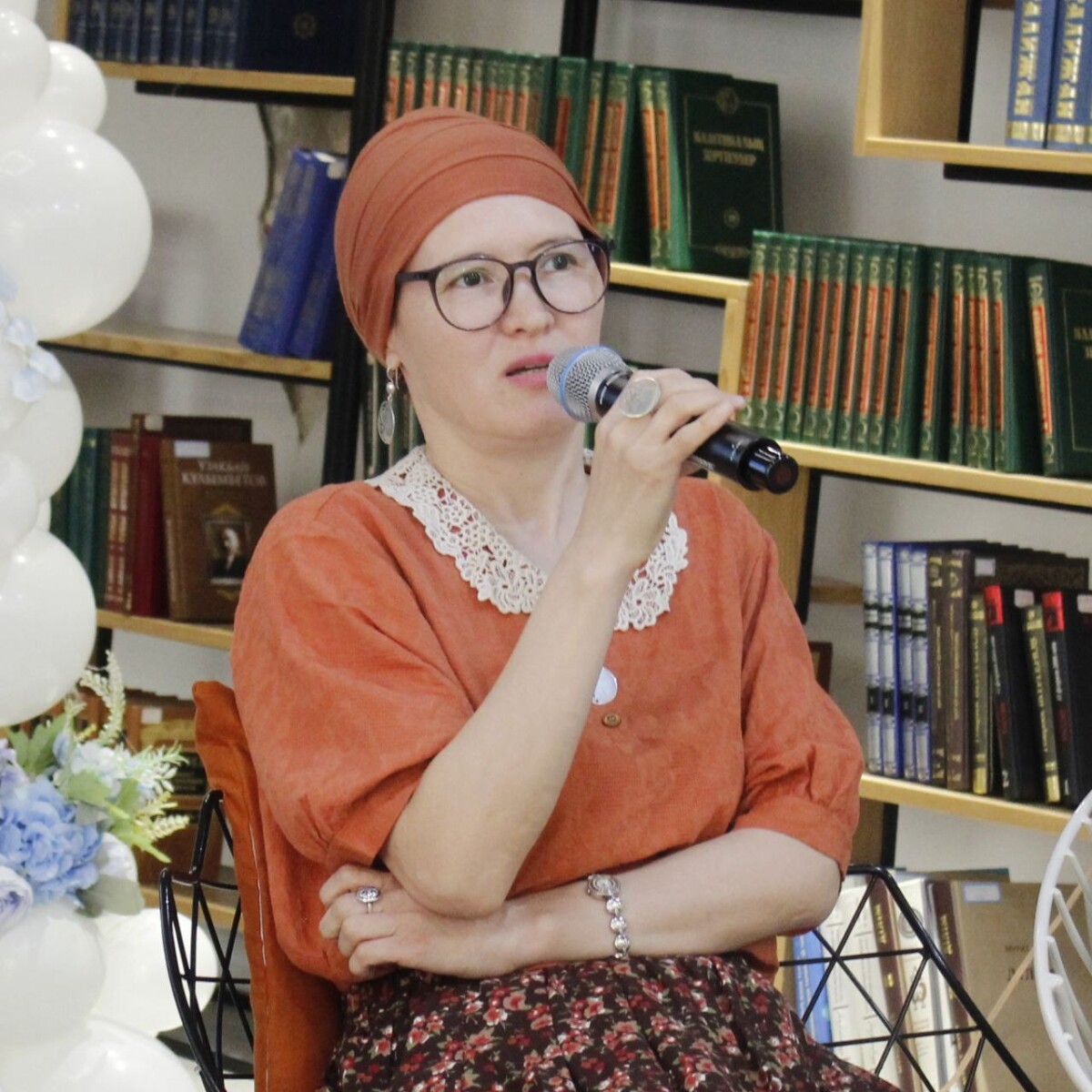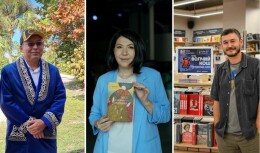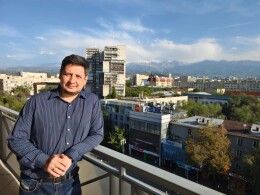We are pleased to present our interview with writer and literary critic Sagadat Ordasheva, whose latest book, Appagym, was published in April of this year. In this interview, we discuss her works and other topics.
Good afternoon, Ms. Sagadat! Thank you for agreeing to this interview!
This year, your second book, Appagym, has been published. Congratulations! How has the publication process been after a 10-year break?
Appagym was released after a 13-year hiatus. Some readers approached the book with caution, while others embraced it with joy. In literary circles, I am perhaps better known as a literary critic than as a writer. There have been various critical remarks regarding the novella Appagym, which actually inspired its title. However, overall, the book seems to have been well-received, and I continue to hear warm and sincere feedback. What matters most to me is that ordinary readers engage with it and understand the message I wanted to convey.
In one of your interviews, you mentioned that you are a synesthete. This neurological phenomenon may not be familiar to many. Can you tell us more about this characteristic? How did you discover that you have it, and how does it influence your creativity?
Yes, it can be described as synesthesia. Creative individuals often develop this kind of intuition at various levels. Poets, artists, and musicians possess this quality, although they may not always recognize it. They might express it with comparisons like, “Someone is whispering in my ear,” “I have a muse,” or “Angels are guiding me.” For me, people have their own aura, color, and even scent. Through these colors and smells, I can perceive a person’s inner spiritual needs, thoughts, and past experiences. While this quality doesn’t define my writing, it does serve as a source of inspiration.
When you first moved to Kazakhstan, did you find it difficult to assimilate? What challenges did you encounter?
Moving to Kazakhstan was not particularly difficult for me. I come from a family that had never traveled abroad, so navigating Almaty alone was a challenge. However, I had prepared myself mentally for the idea that Kazakhstan was my place, my country. During my first year, I served as the dean of students at the philological faculty, and in my second year, I became the group supervisor, which involved a lot of decision-making. By my fourth year, I was collaborating closely with the department’s teachers.
My persistent questions and determination often led the teachers to seek my input on various issues. They even organized major events and appointed me as a leader because of my knack for creating slogans. I often felt like I was walking through fire, constantly solving problems. In my first year, I even saved a girl from being attacked in a dormitory and assisted the entire department in bringing that criminal to justice. Now, I can see my father laughing as he affectionately calls me his "daughter-firefighter." I truly embody that role; people reach out to me in their most challenging moments, whether it’s the middle of the night or early morning. I've become accustomed to it.
Many aspiring writers are often influenced by the books they read from a young age. Who inspired your journey into creativity?
I dreamed of becoming a writer from a young age. Even while herding cattle as a child, I saw writing everywhere. Sometimes, I couldn't control my hand; I would gaze at the sky and pretend to type, as if pressing keys on a keyboard. Whenever I came across a blank sheet of paper, I would collect it, not wanting to throw it away, thinking, "When I grow up, I will write so much that I won't have enough paper." I wrote my first two novels purely to practice my skills. Zhumadagy Raushan is my third novel.
Aigul Kemelbaeva and Roza Mukanova have greatly influenced my creativity. Although they have very different styles, I loved reading their works. Later, Askar Suleimenov and Talasbek Asemkulov also guided my writing. I believe these four individuals have had a significant impact on my work. I still remember the day I got into a car accident while reading Aigul Kemelbaeva's short story collection Konyr Kaz. That experience left a lasting impression on me, and now every time I read Konyr Kaz, I recall the incident.
Can writers influence the resolution or discussion of societal issues? Do they have an obligation to do so?
Writers may not be able to directly intervene in various societal issues, but they can participate in discussions, analyze situations, and help shape public consciousness. Society is hurting, regardless of how you look at it. No matter where you touch it, it feels the pain. We need to approach healing these wounds delicately, without causing further harm. Engaging in dialogue with authorities—who have historically been uncommunicative with the public—is essential.
Statehood should not be solely dictated by the ideology of one party; it requires finding a compromise between different environments. It’s increasingly challenging to maintain power in this system, and it’s a healthy, conscious generation that will facilitate change. Writers shouldn't be responsible for changing everything; instead, they should think more broadly and deeply. Open discussions serve as models for this kind of engagement. By entering into a general dialogue, we can work towards improving laws and advocating for change. However, this must be done with genuine intent and character, not arrogance or disdain.
What do you think about our literary criticism? Does it truly exist?
To say whether literary criticism exists is reminiscent of the insecurities that arose during the Soviet era, where criticism served as an instrument of ideology. Modern criticism, in many ways, has emerged from the sycophantic and flattering mentality prevalent among the Kazakh people. Furthermore, those writers who have achieved true freedom of thought remain a minority.
There is no established standard for what a modern critic should be. On one hand, there is little motivation to write unpaid articles; the appreciative readership is scarce, and demand for criticism is lacking. If there were demand, shouldn’t at least one critic emerge?
I recognize Talasbek Asemkulov and Aigul Kemelbaeva as notable critics. The role of a critic transcends mere criticism; it involves interpreting a writer’s work. Often, writers and poets may not fully grasp what they have created. A critic’s job is to translate their eloquent language into something accessible to the general public, uncovering valuable insights hidden within the tapestry of cultural history.
I cannot regard scientific articles filled with incomprehensible terms as genuine criticism. A critic must forge their own vocabulary and craft unique phrases. Why do our people equate scientific research with the adoption of global terminology? Is it truly impossible to develop our own terms and produce informative, critical essays?
A critic should be a visionary, someone who is one step ahead, not confined to the limitations of their time or era. Do we have such individuals in our midst? And if we do, who will support and compensate them?
Thank you for taking the time to fully answer our questions and share your insightful thoughts. We wish you great success in your creative endeavors.












